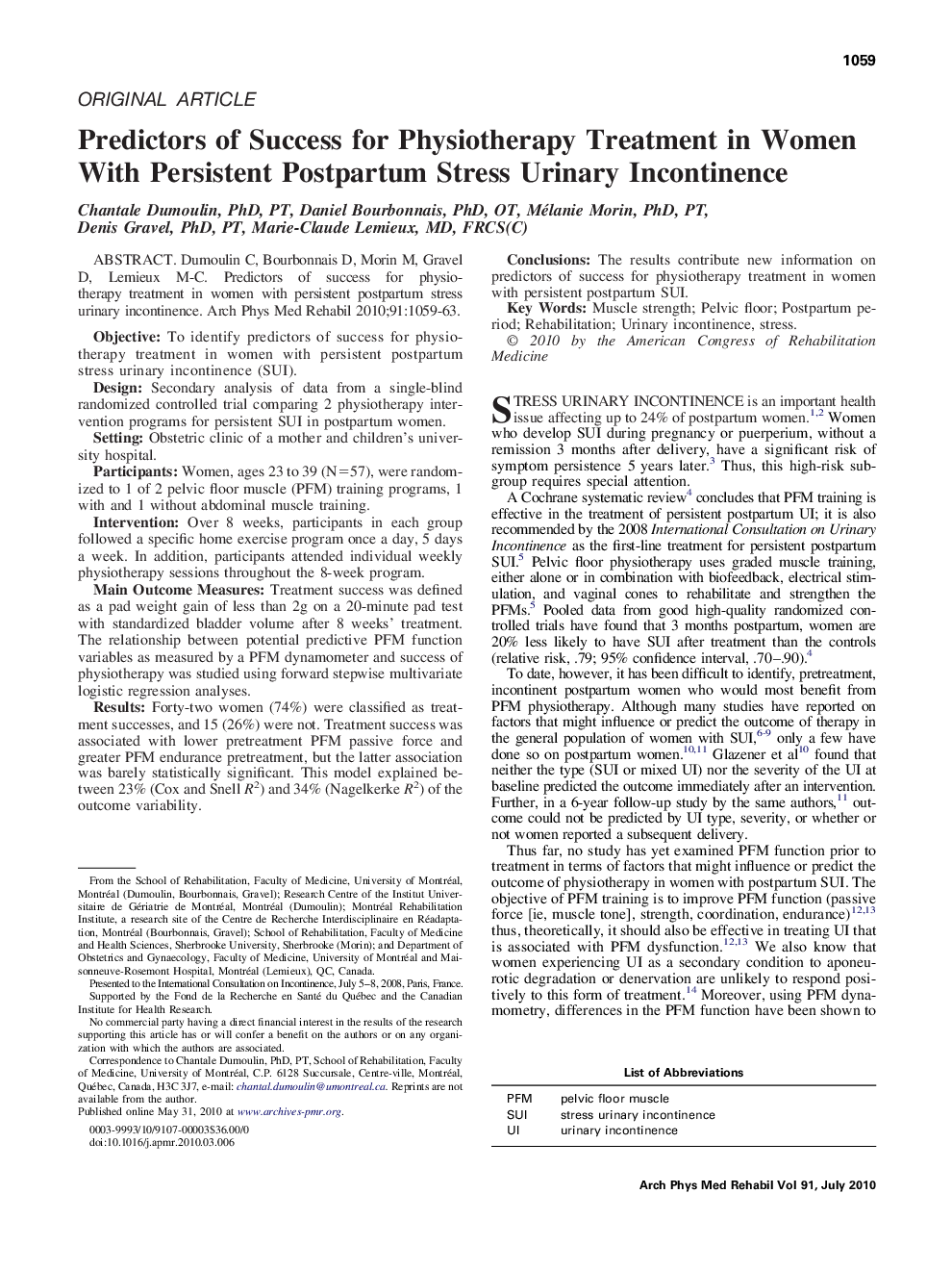| Article ID | Journal | Published Year | Pages | File Type |
|---|---|---|---|---|
| 3451046 | Archives of Physical Medicine and Rehabilitation | 2010 | 5 Pages |
Dumoulin C, Bourbonnais D, Morin M, Gravel D, Lemieux M-C. Predictors of success for physiotherapy treatment in women with persistent postpartum stress urinary incontinence.ObjectiveTo identify predictors of success for physiotherapy treatment in women with persistent postpartum stress urinary incontinence (SUI).DesignSecondary analysis of data from a single-blind randomized controlled trial comparing 2 physiotherapy intervention programs for persistent SUI in postpartum women.SettingObstetric clinic of a mother and children's university hospital.ParticipantsWomen, ages 23 to 39 (N=57), were randomized to 1 of 2 pelvic floor muscle (PFM) training programs, 1 with and 1 without abdominal muscle training.InterventionOver 8 weeks, participants in each group followed a specific home exercise program once a day, 5 days a week. In addition, participants attended individual weekly physiotherapy sessions throughout the 8-week program.Main Outcome MeasuresTreatment success was defined as a pad weight gain of less than 2g on a 20-minute pad test with standardized bladder volume after 8 weeks' treatment. The relationship between potential predictive PFM function variables as measured by a PFM dynamometer and success of physiotherapy was studied using forward stepwise multivariate logistic regression analyses.ResultsForty-two women (74%) were classified as treatment successes, and 15 (26%) were not. Treatment success was associated with lower pretreatment PFM passive force and greater PFM endurance pretreatment, but the latter association was barely statistically significant. This model explained between 23% (Cox and Snell R2) and 34% (Nagelkerke R2) of the outcome variability.ConclusionsThe results contribute new information on predictors of success for physiotherapy treatment in women with persistent postpartum SUI.
